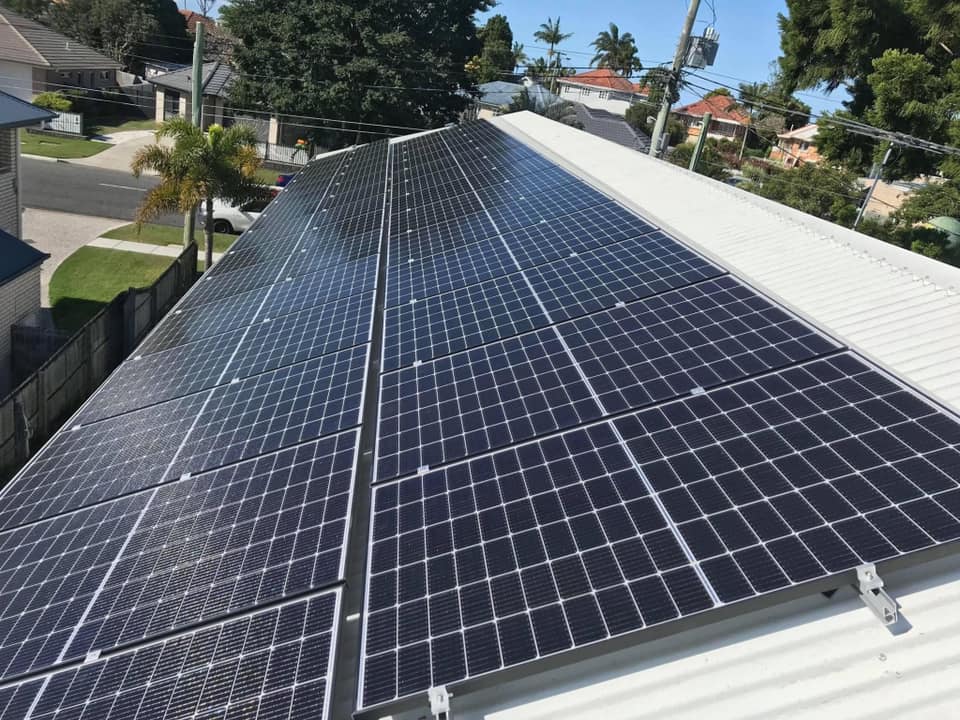Last update July 10th, 2024 at 05:24 pm
What about leasing a solar system? When getting a solar panel system, you will be able to choose between a number of different financing methods. Among these is solar leasing. If you are not able to pay for the system upfront, this might be a financing solution to consider.
Here you will learn more about solar leasing, how it works and whether it is a good idea or not.

What is solar leasing?
Leasing a solar system is a way to finance the solar panel system, without having to pay upfront. When leasing a solar system, you are usually paying for it on a monthly basis. The payment period will typically be around five to ten years.
Although you pay for the system over time, you will not necessarily own the system when the leasing period is over. This will depend on the agreement you make with the leasing company. Sometimes you can buy the system for a good price at the end of the period.
In other words, solar leasing is basically a form of rental agreement. When the payment period is finished in most cases, you may own the system or you may have to pay an agreed price for it.
What are the benefits of leasing a solar system?
Although leasing a solar system will usually mean that you don’t own the system yourself, a leasing agreement has many benefits.
For instance, solar leasing will usually include service agreements. This means that the leasing company is responsible for all the upkeep of the equipment. In other words, you will not have to pay for repairs or regular service checks.
Another benefit of leasing is the fact that you will usually not have any installation costs. The cost of installing and the system itself are covered by the solar financier.
You will also be able to enjoy the same benefits as people who finance the system in other ways. This includes insulation against high power prices. You will also be able to reduce your own carbon footprint, as the energy produced is clean and green!

Solar PPAs vs. solar leasing
In Australia, PPAs or Power Purchase Agreements are more common than traditional leasing agreements. Although leasing and PPA have many similarities, there are also some differences.
When you have a traditional leasing agreement, the lease payments are for the solar panel system itself. You will usually pay the same amount of money every month, even if your solar provider experiences solar system output fluctuations due to periods of less sunlight.
With solar PPAs on the other hand, you will only pay for the amount of solar panel energy that your system produces within a specific period of time.
Who is leasing a solar system suitable for?
Leasing a solar system can be suitable for anyone who can’t pay upfront for the whole system at once. However, the financing form is more common among businesses than private households.
In the United States, leasing agreements for private residents are far more common than in Australia. Actually, most of the solar panels installed in private American households are based on leasing agreements.
Although leasing agreements have been on the Australian market for a while now, it is not a very popular option.
Is leasing a solar system a good idea?
A solar loan is better than leasing.
For private households, solar leasing might not be the best solution. Most Australians would like to own the solar system. With a regular loan, you will pay for the system month by month, but unlike solar leasing agreements, you will own the system yourself in the end.
However, if you just need a solar system for a limited period of time (and ownership is not a priority), leasing might be a good solution for you.
Your power consumption also matters
The best return on investment is to use the power at the time it is generated. The reduced feed-in tariffs (payment for surplus energy) are the main reason for this.
Not using electricity when it is produced will not get you the most benefit from your solar energy systems
A general rule of thumb is that solar leasing is most suitable for those with higher-than-average energy consumption (quarterly electricity bills of $1,000 or more). In most cases, this will be businesses and not regular households.
Getting started?
If you would like to get started with leasing a solar system, you should contact a solar installer that offers leasing agreements. The installer will help you find the most suitable solar system for your house or business facilities, and you will get a leasing offer.
Find your solar installer, today.